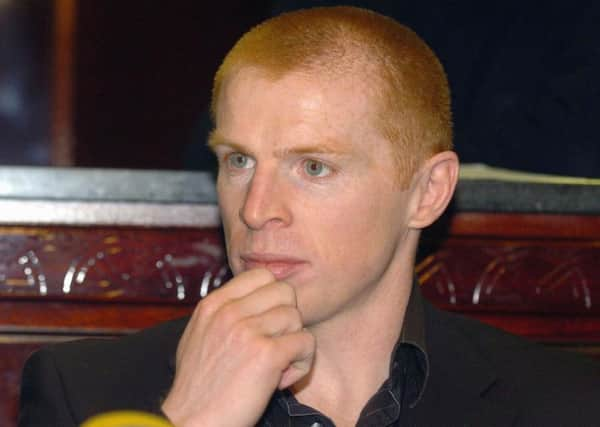Lennon's help for mental health


The former Celtic manager used his experiences of depression to spot his own players suffering from psychological stress.
And now he is leading a Scottish national campaign to change the culture of fear and silence around mental health.
Advertisement
Hide AdAdvertisement
Hide AdLennon has backed the Power of Okay campaign to tackle the stigma of depression at work after revealing he didn’t speak to his team-mates when he was first diagnosed.
He said: “I’ve noticed it in one or two players at the clubs that I have managed. I’d quietly have them into the office and speak to them about my experiences with depression and say I can recognise what they’re going through.
“I’d take them to see the club doctor and get them on the right road again.”
Lennon added: “In any walk of life, whether you’re an office manager, a bank manager, you’re the leader of a group of people at work or in any other walk of life, then it is good to be up to speed with mental health, and if you notice it quickly then you can get someone back on track a lot quicker.
Advertisement
Hide AdAdvertisement
Hide AdHe said: “I remember playing against Rangers in an Old Firm game. I was basically on autopilot. Your thought process isn’t the same.
“Physically, I could do the things I normally could but there was no enjoyment or intensity to my playing. You feel as though you’re drifting whereas people think you look OK, that’s why I was being picked. But I didn’t enjoy it, I got through it and we won the game at Ibrox.”
Lennon said not feeling able to tell his team-mates left him feeling “paranoid.”
He said: “I woke up one morning and I just knew there wasn’t something right with me. I was feeling different. The main thing was the football – I just didn’t want to be there. I didn’t tell anyone at first but I became paranoid because I knew I was acting differently – not laughing or communicating on the pitch – which were all things I did before.
Advertisement
Hide AdAdvertisement
Hide Ad“It was obvious something was wrong. When I started to feel better, I confided in one or two players and they said they knew something was wrong and were supportive although they didn’t have a great understanding.”